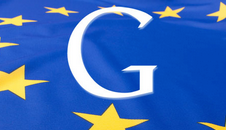French Court Orders Google To Remove Max Mosley Images From Search Engine Results
After making a public plea for the European courts to dismiss a lawsuit filed by former Formula One president Max Mosley, Google found out today the French court has ruled in favor of Mosley and is forcing the search engine to censure search results. According to a report on Reuters.com, the French court has ordered […]

According to a report on Reuters.com, the French court has ordered Google to, “Remove and cease, for a period of five years beginning two months after this decision, the appearance of nine images identified by Max Mosley in the Google Images search engine results.” To keep the images in question from showing up in search results, Google says it will have to build a new software filter.
“Even though we already provide a fast and effective way of removing unlawful material from our search index, the French court has instructed us to build what we believe amounts to a censorship machine,” said Google’s associate general counsel Daphne Keller in a statement on the ruling.
The case involves nine photographs of the former Formula One racing president taken during a 2008 orgy with prostitutes. The photographs were posted in conjunction with an article published by the now defunct British tabloid News of the World, claiming Mosley had organized a Nazi-themed orgy.
While Mosley admits there was such an event and that he did pay five women to participate, he denied it was Nazi-themed. He won cases against the British tabloid in both Britain and France for publishing defamatory photos taken at the event. Mosley’s case against Google claimed the search engine had not done enough to remove the images from search results.
Google says the court order is a, “Troubling ruling with serious consequences for free expression,” and that it would appeal the decision.
Google’s argument remains that any illegal content found within its search results is not the fault of the search engine, nor is it Google’s responsibility to police such matters. As the company stated in its public plea for the lawsuit to be dismissed, “True responsibility for unlawful content lies with the people who produce it.”
Opinions expressed in this article are those of the guest author and not necessarily Search Engine Land. Staff authors are listed here.
Related stories